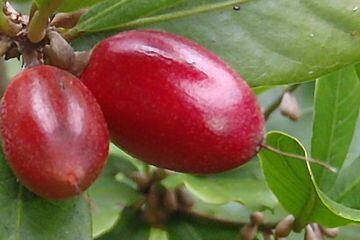The firm, which outlines the challenge on its G-WIN open innovation platform, uses lactic acid, citric acid and malic acid in a wide variety of foods to enhance flavor, control pH, prevent non-enzymatic browning and act as a curing agent.
We seek ingredients that block or mask the perception of sourness
However, these acids can impart a sour taste that is unpalatable to some consumers, “particularly in foods with moderate levels of other tastants”, says the company.
“Specifically, organic acids contribute to the activation of ion channels in taste cells associated with sour perception. Additionally, in many food systems acidic levels can increase through the shelf-life of the product.
“We seek technologies to block the perception of sourness of lactic acid, citric acid and malic acid at the receptor channels and/or ingredients that mask sourness perception.”
Miraculin is not of interest

General Mills is not, however, interested in sweeteners or sweet taste enhancers; technologies that depend upon buffering agents or systems that manage acid levels directly; or solutions involving ‘miracle’ berry Miraculin or curculin (a protein from the fruit of Malaysian plant Curculigo latifolia).
However, possible approaches might include modulation of sour taste receptor(s) or suppression of sourness perception, it says.
Natural ingredients preferred
The following technical criteria must be met for any prospective solution:
• Does not significantly alter the existing flavor profile of a food, as judged by an in-house sensory taste panel.
• Does not significantly alter the nutritional profile.
• Functions at a pH range <5 and does not impact the pH or change the chemical behavior of natural proteins in the food matrix.
• Is thermally and chemically stable at 90-95̊C for 10 minutes.
• Is thermally and chemically stable for 60 days at refrigeration temperatures.
• All additives or chemicals proposed are GRAS approved or could be approved in the foreseeable future.
It adds: “We are especially interested in proposed solutions that provide the following ‘nice to have’ quality: Made of natural ingredients, meaning of botanical origin or not synthetically produced.”
Senomyx: We haven’t explored sour taste suppression… yet

While San-Diego-based flavor innovator Senomyx has a bitter blocking program designed to suppress bitterness from soy & whey proteins, menthol, caffeine, cocoa and Rebaudioside A (stevia), a spokeswoman told FoodNavigator-USA that the firm is not currently working on any sour taste modulators or suppressants:”We haven’t explored any aspect of sour taste to date.”
The best-known sour taste suppressant is miraculin - a glycoprotein extracted from the fruit of Synsepalum dulcificum that can make certain acidic foods such as lemons, taste sweet - an effect that lasts up to an hour.
However, it does not have GRAS status in the US.
General Mills will review all proposals within two to three weeks and will then decide on appropriate next steps with partners of interest, which might include developing a proof of concept, licensing agreement, or supply agreement, making an investment or creating a joint venture.
Click here to find out more.
